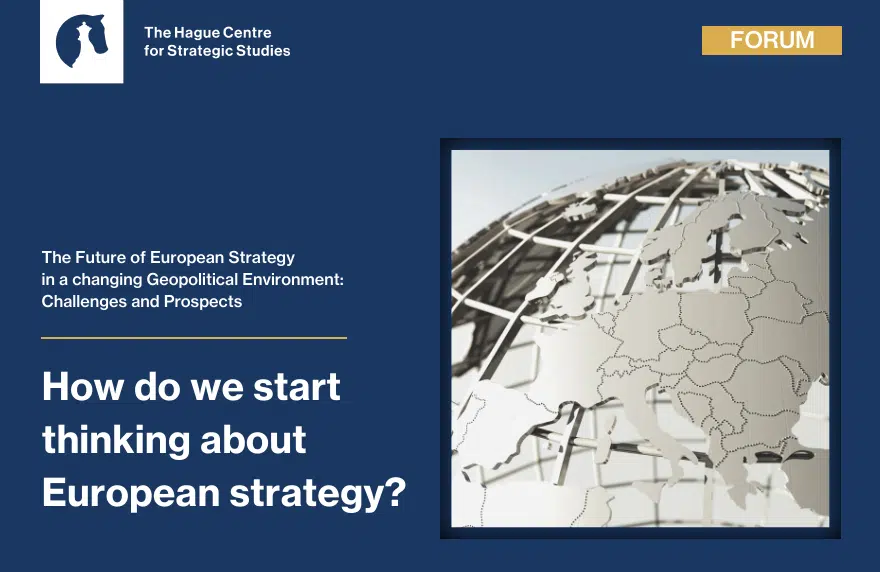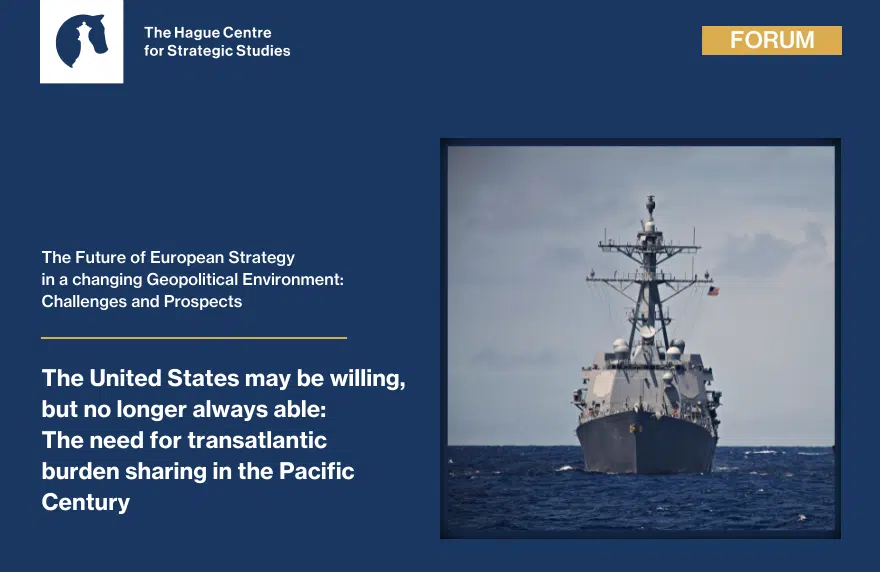Research
The EU is relatively new to the game of power politics and does not necessarily fit within existing classifications of the great powers. Traditionally, great powers politics and their grand strategies are associated with the realist schools of thinking (either in the academic discipline or in policy). In these debates, the EU is often dismissed as strategically illiterate. However, strategic thinking should not be reserved for realist theorists and realist powers. From the perspective of normative power, the EU may not be as strategically illiterate as traditional conceptions suggest. In fact, normative power is an essential instrument in the EU’s foreign policy toolbox and should play a central role in the debate about strategic autonomy.
The limits of EU strategic autonomy
With the 2016 EU Global Strategy (EUGS), the EU set for itself the goal of “strategic autonomy.” The EUGS discourse depicts the Union as being “under threat” and in an “existential crisis.” Former Commission-President Juncker called for Europe to “toughen up.” More recently, EU High Representative Borrell argued that the EU should learn “the language of power.”
As a result, considerable emphasis is now being placed upon bolstering the EU’s hard power. For example, PESCO projects have given the Member States valuable experience in launching cooperative projects in the development of defence capabilities.
Yet these initiatives lack clarity and consistency. Specifically, if member states drive European security cooperation, then the EU runs the risk that its security and defence policy will be influenced by those member states’ industrial interests, rather than by a shared threat-based analysis. Moreover, while boosting cooperation and integration in the area of security and defence may be groundbreaking for the EU, in terms of global power dynamics it seems little more than catching up in terms of effectiveness and efficiency. The sum of national budgets does not translate into the same fighting powers as when it would be spent as one budget. Furthermore, the anticipated Strategic Compass, centered on strategic autonomy and aimed at providing political guidance on the EU’s military level of ambition, suffers from ambiguity and hides EU member states’ fundamental differences about the EU’s role in the world.[1] All of this may weaken rather than strengthen the EU’s position as a geopolitical actor in the long run.
This lack of clarity and consistency in EU strategic autonomy and security cooperation raises two further ambiguities. First, strategic autonomy is often treated interchangeably with European sovereignty. The concept of strategic autonomy avoids attributing state characteristics to the EU. But the idea of European sovereignty that is sometimes used interchangeably with strategic autonomy implies, in fact, something else. The process of decades of European integration has not abolished national sovereignty, but relativized its importance. This new meaning of sovereignty has been a key contribution of the EU to a rule-based international order: EU sovereignty demonstrates that, despite its hiccups and limitations, protecting citizens is not a zero-sum game between national and European competences. This means that re-installing the notion of sovereignty at the European level with the same rigor national sovereignty is understood would be a serious mistake, as it would confirm the zero-sum thinking between competing interests on a global scale.
Second, strategic autonomy is often understood as autonomy fromother great powers like Russia, China, or the United States. But allowing itself to become (too) independent from other great powers in areas such as critical infrastructure could be problematic for the EU. It would contribute to the emergence of geographical blocs that are increasingly detached from one another. A drive for European autonomy that goes too far would only intensify this tendency and would challenge the EU’s emphasis on multilateralism.[2] It would undermine the objective of developing and maintaining international — or even universal — norms and rules in security and defence, like norms regarding cyber security, non-proliferation, and arms control.
Normative power as strategic instrument
As opposed to this realist view of strategic autonomy, taking normative power as a starting point for developing a strategic compass opens up space to embrace a different version of strategic autonomy. Specifically, strategic autonomy can serve to bolster the EU’s normative power. For example, a version of strategic autonomy that would give the EU the capacity to act to “promote rules-based multilateralism and human rights in unstable and more competitive worlds…and help enforce those rules, including through use of force if so authorized by the UN Security Council” would make normative power more credible and aid making it into a strategic instrument.[3]
Normative power is more than rules-based multilateralism and an overarching identity that is associated with the promotion of particular values and norms. It also is an instrument. It is the ability to “shape conceptions of what is normal,” that is, to develop and set norms that may shape other states’ behavior.[4] Focusing on a rules-based international order is as much a principled conviction as it is a strategic instrument. Rather than focusing on short-term scoring in the global game of power politics with little consideration for international treaties and regulations, a normative power approach concentrates on establishing rules and building coalitions for fair play. Normative power’s importance for EU strategy is that is draws the attention to the importance of norms as a long-term strategic interest. For example, rather than engaging in an arms race (scoring), this would entail a continued advocacy of non-proliferation norms to address fears of nuclear proliferation.
This normative power not only helps in developing an EU Strategic Compass, it is also already well-established in the EU’s arsenal. While it has become less prominent in the EU’s policy discourse in recent years, the EU has long viewed itself as a normative power.[5] Although the EU and its Member States do not always live up to the norms and values they set for themselves,[6] some features of normative power have become institutionalized in the EU’s foreign and security policy. For example, the Treaty still provides a clear normative benchmark to the EU’s foreign and security policy: “democracy, the rule of law, the universality and indivisibility of human rights and fundamental freedoms, respect for human dignity, the principles of equality and solidarity, and respect for the principles of the United Nations Charter and international law.”[7] As such, normative power still has a significant bearing on the way the EU behaves as an international security actor. An essential aspect of setting norms is developing a multilateral framework that upholds these norms. Hence, the EU needs to collaborate with other actors and, where possible, to discourage the emergence of opposing geopolitical blocs.
Conclusion
Strategic autonomy is not merely a question of material power capabilities and specifying what types of military operations the EU should be able to conduct independently. Instead, strategic autonomy reflects a more fundamental question about the way the EU positions itself as a normative geopolitical actor. Whilst measures that would strengthen the EU’s hard power are important, the Strategic Compass — which is centered on strategic autonomy — should incorporate the EU’s normative power as a strategic instrument. Rather than viewing normative power as a relic of the past or as an unaffordable luxury in a dangerous world, it should be embraced as a guiding principle and instrument for the EU’s Strategic Compass and influence the type of strategic autonomy it pursues.
Assist Prof Dr Trineke Palm
Netherlands Defence Academy (Netherlands)
[1] Daniel Fiott, “Strategic autonomy: Towards ‘European sovereignty’ in defence?,” EUISS Briefs, Paper (2018); Ester Sabatino et al., “The Quest for European Strategic autonomy – A Collective Reflection,” Documenti IAI, Paper (2020); Dick Zandee et al., “European strategic autonomy in security and defence” (The Clingendael Institute, December 2020), https://www.clingendael.org/sites/default/files/2020-12/Report_European_Strategic_Autonomy_December_2020.pdf.
[2] European Commission and High Representative, “Joint Communication to the European Parliament and the Council on strengthening the EU’s contribution to rules-based multilateralism,” JOIN (17 February 2021), See also the French-German initiative “Alliance for Multilateralism.”
[3] Arnout Molenaar, “Unlocking European Defence,” IAI Papers, Paper 21|1 (2021).
[4] Ian Manners, “Normative Power: a contradiction in terms?,” Journal of Common Market Studies, 40:2 (2002).
[5] The article in which Ian Manners coined the term in 2002 has become one of the most cited studies in EU studies. Beyond the academic scene, it also has been picked up by policymakers.
[6] The EU’s normative power is questioned regarding both its internal affairs, for example the concerns about the rule of law in countries such as Hungary and Poland, and its external policies, for example the allegations about Frontex’ involvement with illegal pushbacks of migrants.
[7] “Treaty of the European Union,” signed: 7 February 1992, entered into force: 1 January 1993, Art. 21.1, https://eur-lex.europa.eu/resource.html?uri=cellar:2bf140bf-a3f8-4ab2-b506-fd71826e6da6.0023.02/DOC_1&format=PDF.







